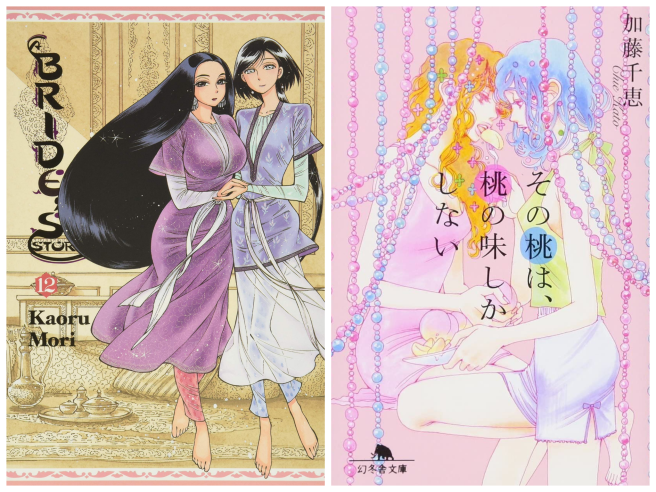
We live in a society, where, especially girls, grow up hating their looks because that’s profitable for capitalism. They turn into insecure individuals in a heteronormative model where they are implicitly told to compete. Add in to the mix the hectic life of the modern city person on top of women’s domestic responsibilities, and healthy socialisation looks farfetched. It’s no wonder then that the image of adult female friendship is weak and when it’s present, it’s perceived as either pretentious and malicious or gossipy and superficial.
When josei manga, that usually deal with romance and work, also feature women who support fellow women, it’s a sight to behold.

Shoujo manga and thus their anime adaptations do feature friendships and yet they differ fundamentally from those in josei titles. This difference isn’t only based on the age of the characters, that range from primary up to high school, but also the way they are staged and the quality of their bonds. Children and teenagers form bonds that are highly dependent on their school setting and their common interests (see slice of life club activities-centric stories), while adults have more filters from which they pass their relationships through and have to make actual time to keep the consistency of their relationships. In a grown up world, full of suspicions and constracted social personas, genuinely going out of one’s way to be there for a fellow woman is rare and commendable. As for the narrative presentation, we either deal with a -homoerotic- mahou shoujo squad (see Sailor Moon and other wholesome spawns) where comraderie is a more appropriate term than friendship, or we have cheerleaders for the female protagonist who clasically is clumsy one way or another and has a heart of gold (see Fruits Basket and Kimi ni Todoke). In the last case, despite having quite realistic young female friendships, there’s a hierarchy of sorts because of the manga/anime focusing on the main couple and a formula of “outlaws” acting as the bodyguard to our innocent maiden with the main theme being romance.
Therefore, josei exploring mature female friendships deserves more attention. Kaoru Mori and Okazaki Mari are both quite niche names, particularly in the English speaking manga sphere, but both are exceptional mangaka with big love for the ladies they are drawing and whose stories are portraying. Every time I read something made from their pen, there’s a valid reason to cry tears of joy. There’s no doubt that they are going to be featured again and again on this corner of mine.

Kaoru Mori has already shown her skill in Emma, where the relationships between women as employers and employees leaps into mentorship and support, but in A Bride’s Story it goes the extra mile, even beyond depecting women passing down customs. In Vol. 12, we witness two moments of communal joy amongst women that center around learning! The enthusiasm, awe and admiration just gush from the page straight into the reader’s heart. Learning to swim is discovering the pleasure of being engolfed by the sea, being in touch with nature, and being allowed to be playful and explorative. Learning to write one’s own name is access to one’s own agency to represent oneself and taking pride in one’s own identity. Both are a taste of freedom, a small victory in a strict patriarchal society.


Okazaki Mari doesn’t have many of her anthologies and works published in English, so she’s even more obscure. Fingers crossed, we will get more of her in the upcoming years, but if you speak French or German, you can look up for what’s currently available to you. In Bathroom Guuwa’s first story, four women come together to share their story with the man they all met, and find solace in each other, commemorating him and weaving him an obituary of sorts. In Yawarakai Kara’s first story two strangers meet in the same house, and as the “intruder” opens up her heart to the hikikomori, the latter finds the strength to face life again. In both cases the Bechdel test isn’t fulfilled and yet in these stories by talking about men, the women end up revealing themselves and becoming the support each other needs to move forward.
The world changes one step at a time, in all the small and unseen ways. Let’s be kind to our “sisters”, to each other and to ourselves.

Thank you for the recommendations! Indeed, we need more stories about women supporting women.
LikeLike
I wonder if I could read Japanese what other gems I could uncover. We thirst for true friendships and general support in a capitalist patriarchy that has set us against each other. Thanks for dropping by, hopefully I can see you around!
LikeLike